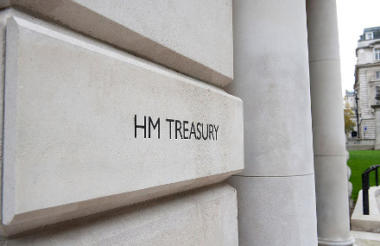Like many I watched yesterday’s Spending Round statement from chancellor Sajid Javid with a mix of weariness and trepidation.
With a general election on the horizon, and the review itself being just for one year rather than the originally planned three, it was always unlikely that there would be much of any substance for the sector.
Statements from the chancellor can only go roughly four ways for the charity sector:
- The chancellor announces funding cuts or changes to tax that have the, often unintentional, consequence of harming charities, and the sector mounts a campaign for a u-turn.
- The chancellor says nothing at all about charities and the sector complains that it has been ignored.
- The chancellor announces small, random pots of funding but nothing meaningful or strategic. Charities say thank you for the money but reiterate calls for more strategic thinking in the future.
- The chancellor announces a package of strategic reform to improve the environment that the sector operates in. I’m not sure how the sector would react as I can’t recall it happening recently, but I assume if it did the reaction would be stunned silence.
In some respects charities do have something to celebrate. The Charity Commission secured a small increase in its funding and there was a commitment, albeit a vague commitment, to increase funding to youth centres.
Charities should also be relieved about additional funding for local authorities, social care and health.
But the funding is short-term in nature, meaning charities and others will continue to operate with a harmful level of uncertainty, and it does not make up for the deep cuts that took place under austerity.
Funding for the Charity Commission
Austerity has seen the Commission have its budget halved in real terms, and as a consequence it has spent much of the last few years complaining about not having enough money to regulate effectively.
So it’s understandable that the announcement that it had secured a 10 per cent boost to its budget was enthusiastically welcomed by its chief executive yesterday.
The regulator’s lack of resource meant that there has been a prolonged debate on the sidelines about the feasibility of getting charities to pay for regulation. For as long as the government is steadily increasing the Commission’s funding it seems likely that those plans will be paused, if not scrapped entirely.
It’s also worth noting that, as with local government funding, this funding boost does not fill the gap left by years of austerity. And the ambitious strategy set out by the Commission’s leadership last year, which would see it be more proactive, surely necessitates a much larger cash injection.
There are also the rumblings of concern about how the Commission plans to use its extra money. On NCVO’s blog, Paul Winyard, policy manager, wrote: "A swifter registration process, more regular updates to the register itself, and a better response to serious incident reports are improvements that would greatly increase the effectiveness of the regulator.
"We would however be concerned if this additional funding were used by the Commission to act outside its scope, as a recent speech by its chief executive Helen Stephenson seemed to imply."
‘Getting a mention in the speech’
Following previous budget or spending announcements, sector figures have complained that charities were not mentioned.
Well hooray! Javid did mention a charity. He praised the work of Onside Youth Zone, and said he had charged the Department for Digital, Culture, Media and Sport with coming up with proposals for a Youth Investment Fund to support youth clubs.
This is a welcome recognition of the valuable work youth clubs do, and an acknowledgement that the government’s youth policy needs to be about more than National Citizen Service.
But it is incredibly vague. There were no further details about what this fund will look like, and crucially, when it is likely to be available.
When I called DCMS, the press office point blank refused to talk about it, insisting that the Treasury was responsible for fielding all questions relating to yesterday’s announcement. The Treasury told me that it is not at the stage where they know how much is likely to be available, and that it is now up to DCMS to put together proposals, so future updates will come from them.
Last night and this morning the minister for civil society, Baroness Barran, and secretary of state, Nicky Morgan, have said that they were pleased about the fund.
What wasn’t said?
Often what isn’t said is more important than what is said at these announcements.
There was no mention of the Shared Prosperity Fund – the pot of money that is supposed to replace funding from the European Union. A consultation was supposed to begin months ago and under normal circumstances would have been a matter of routine.
What I find most puzzling is that in a speech that was intended to be about “the people’s priorities” and which included other vague commitments, there wasn’t space for a even a line about the Shared Prosperity Fund.
Assuming that there is a general election announced soon, it will be important to see how closely the Conservative manifesto pledges mirror yesterday’s commitments, and if so how much they build on them. Charities desperately need stability and a long-term vision, but in current circumstances I wouldn’t be placing any bets on that happening soon.
|










